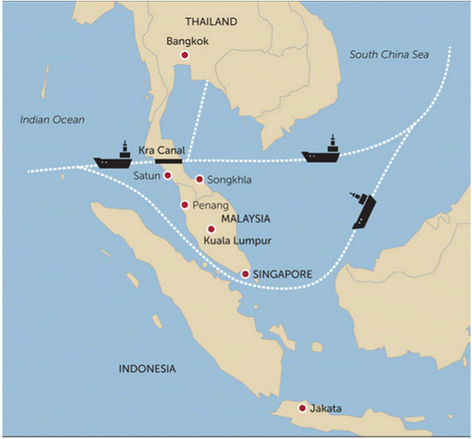OF late, I have been keeping myself at peace, ignoring all political nuances and noises.
Only occasionally, I would watch from the sidelines how the government of the day is ruining little by little the principles and practice of corporate governance within our government-linked companies (GLC), government-linked investment companies (GLIC) and state-owned enterprises (SOEs).
The justification by the government on the appointment of politicians that they can provide check and balance is not acceptable.
It goes beyond imagination that these politicians are able to provide better check and balance than the professionals, let alone adding value to their stewardship towards the organisations.
In fact, experience has shown that there were many abuses as well as conflict of interests when these politicians sit on listed GLCs as well as GLICs.
‘No politicians on board’ policy
The appointment of ‘retired’ politicians raised concerns – is this a way to compensate them?
Although the government has the right to appoint chairman, CEO and even some board members as per granted under the special shareholder rights, one wonders if the appointees would be subjected to robust nomination process to have their suitability scrutinised before being appointed.
I have always stressed the need to review the practice of allowing the government of the day to appoint chairman, CEO and board members in listed GLCs if indeed we are serious in wanting to promote good corporate governance.
In recent times, there is a tendency of having almost every Perikatan Nasional (PN) MP or staunch political supporters already been planted at GLCs, GLICs and SOEs across both the federal and state levels.
By the account of Finance Minister Tengku Zafrul Abdul Aziz, some 15 politicians including MPs, state assemblymen, senators and party members had been appointed to companies under the Minister of Finance Incorporated (MOF Inc) as of Aug 11, while “only two” politicians were appointed to statutory bodies parked under his ministry.
It came as a shock to me that Bank Rakyat now has an active politician on its board even as it is being regulated by Bank Negara Malaysia (BNM) under the Development of Financial Institution Act 2002.
And if I remember correctly, the Corporate Governance Code issued by the BNM clearly stated that no politicians (even those holding positions at the divisional level in a political party) are allowed to sit on the boards of financial institutions.
If Bank Rakyat is under the jurisdiction of BNM, why is there an exception?
Fit and proper test
Likewise, an issue of concern insofar as governance is concerned is the “questionable” conduct of the individuals appointed to boards of public listed companies.
How about the fit and proper test? Did all political appointees go through the fit and proper test?
The concerns going through the mind of corporate governance advocates like myself is none other than the government eventually making use of these individuals as conduits to mobilise crony capitalism.
By wielding their influence, politicians who helm GLCs, GLICs or SOEs are in a powerful position to dictate the offering of lucrative contracts or even to curry flavour financial institutions to help crony businessmen secure hefty “sweetheart” credit.
As pointed out by former Transparency International Malaysia president Akhbar Satar, there are many lapses which may occur during a procurement process such as conflict of interest, misuse of power, embezzlement, tender manipulation, fraud, bribery and corruption.
Corrupt ministers, politicians or senior government officials tend to see this as a goldmine for making easy money especially relating to expenditure for the public sector.
Check and balance
Considering that some of the GLCs and SOEs are public listed entities, there is a need for market regulators to step up a gear to monitor their weak internal control mechanisms by ensuring the prevalence of corporate governance in every layer of their organisational structure.
In essence, market regulators mustn’t act as lame ducks but stringently oversee that each and every appointment of key personnel abides by a transparent process without any violation to the companies’ constitution.
Among others, there must be early warning systems, checks and balances, and a wider national framework of democracy, rule of law and freedom of speech to prevent a monopolistic control by a few politicians who can get away with anything.
Likewise, nomination committees, too, must make independent evaluation of board appointees instead of merely acting as a rubber stamp to echo every instruction from the top.
Entirely eradicate political elements
In the current state of financial hardship, one would expect the government to focus on stimulating and re-activating the economy to create employment rather than to propagate crony capitalism for political survival.
It saddens me as a corporate governance advocate that GLC directorships were and are still an important trade-off for political allegiance – either as a reward to reciprocate support or as a platform for raising funds to finance politically-motivated activities.
Therefore, I see as vital the need to disband politicians to the grassroot level at every GLC, GLIC or SOE, lest they are very likely – in one way or another – to incite head honchos appointed at executive level from executing their duties professionally.
In a similar account, professionals who are appointed to helm GLCs, GLICs or SOEs must prioritise national interest at all cost rather than stooping so low to be servants of their political masters (who would probably hold their jobs to ransom).
For the sake of discussion, I wish to mention the recent appointment of Telekom Malaysia Bhd’s (TM) managing director and group CEO without disputing his true potential, credentials, experience or qualification.
In one of my opinion pieces last year, I questioned the decision by the board of the national telco company to sideline its former chief operating officer and acting group CEO Imri Mokhtar from becoming the head honcho considering that he was then the best candidate to fill the void following the departure of Shazalli Ramly a month after the 2018 general election.
Fast-track a year later – following the change in government – it seems that Imri is suddenly dubbed as a “TM home-grown talent with a strong background in strategy and business operations” to take the company forward in its next phase of growth.
Fortunately for TM, Imri possesses genuine credentials to steer the telco into the realm of Industrial Revolution 4.0 although the same cannot be said of other GLCs, GLICs or SOEs.
The lesson learnt here is that businesses should be run by professionals and not to be politicised at any cost.
With regard to TM, the spate of resignations preceding Imri’s appointment has surely been very disruptive to the national telco especially considering the ultra-competitive environment that it is operating under today.
Moving away from TM, a similar sentiment must be felt by MISC Bhd with Noh Omar stepping down as its chairman a mere 16 days into his appointment “as a matter of principle and not because of politics”.
To date, the shipping giant has yet to find a successor to Noh. – Aug 21, 2020.
Lya Rahman is the adviser to the Institutional Investors Council of Malaysia (IICM) and former general manager of the Minority Shareholders Watch Group.
The views expressed in the article represent the views of the writer and do not necessarily represent the official views of the IICM.










